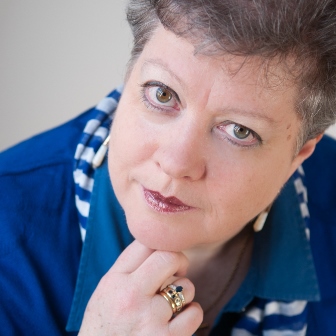Your book is now complete. You tell yourself that it is a masterpiece. So, why on earth do you need an editor? Isn’t that overkill? Surely the editor will only pick holes in your work and, possibly, expect you to rewrite whole sections?

I would like to show you why an editor is a critical part of the end-to-end process of producing a book and I would like to demonstrate why by citing the case of the Invisible Gorilla.
The Invisible Gorilla refers to an experiment that was run by two academics, Simons & Chabris, at Harvard University in 1999. This can be found on their website www.theinvisiblegorilla.com and is called the Original Selective Attention task. A group of individuals were asked to look at a video and count the number of passes that the basketball players, dressed in white, made to each other during the clip. Only at the end were they asked whether anyone had seen the gorilla. Surely, you think, the participants would see something that obvious. But, worryingly, only half of those who sat the test saw the man in a gorilla suit that walked on, beat his chest and walked off the court.
The reason for providing this example is to demonstrate that we all have very selective perceptions of our surroundings. A lot that happens right under our noses goes completely unnoticed. As a result, our confidence in our own abilities is quite often seriously misplaced.
For this reason, I would argue that we need to accept that we as authors are fallible. We may be able to craft an intricate plot. May be able to use language in exciting new ways. May create fascinating characters that so entrance our readers they are desperate to read our next book. But, somehow, I doubt that any one author is truly capable of being great at creating all of the key building blocks of a great novel with no assistance at all.
So, if we accept that we do not see the invisible gorillas in our own writing, then it follows that we need help to spot the glaringly obvious. Friends or colleagues can often be good beta readers and may come up with some initial mistakes which an author can then iron out, but even they may miss some key points since they are often still reading for pleasure, not analysing and assessing the text as an editor would.
Editors add real value by checking the plot-line, the pace, the characterisation, the spelling and grammar, whether the book fits with the genre, the balance between dialogue and description and many other essential elements. Their comments should be given due respect, since they understand the experience of the reader more completely than we possibly can as the author, since our focus is set firmly on the creative process itself and, because of that, we are more tightly wedded to our own creation. If an editor suggests changing certain aspects of your new masterpiece, then listen to their guidance. There may be occasions where you did intend a particular reaction in the reader and so you may wish to retain your original text. However I would argue that these retentions should be in the minority if you want to really improve your book.
To pitch the best possible manuscript to agents, or to self-publish the most professional book possible, then it would be folly to refuse to accept help, even if that assistance comes with a price tag attached.
Of course you can always save money and undertake a self-edit yourself, and there are many extremely good books available to help guide you through this process. Among these, I have found those by James Scott Bell and Roz Morris to be the most helpful. However I would still argue that self-editing is a process where you run a serious risk of failing to spot the gorilla.
I used two editors (a structural editor and a proof editor) before self-publishing my novel, The Dawnlands Catch, and I would thoroughly recommend the use of editors. They saved me from some frankly embarrassing glitches in continuity that I, and my five beta readers, had missed. For example, I had written a scene that happened in Houston, but later in the book my characters referred to it as Dallas on two separate occasions. Despite re-reading the book and making updates, none of us noticed, but my editor did.
As the gorilla experiment demonstrated so strongly, the majority of us do not clearly see what is happening in front of us. So, on that basis, can you really be absolutely certain that you can do without the guidance of a professional editor?

Sam Audley writes pacy, tightly-plotted international crime thrillers. Last year her well-received novel, The Dawnlands Catch, was based on the concept of ‘when is an offer too good to be true?’It majored on the themes of betrayal and manipulation and covered action spanning Africa, Asia and the United States. She is currently finalising the next novel in the Maria Ruiz series, a tale of ‘who can you trust?’ based in Guatemala and Mexico.
Follow Sam on Twitter @sam_audley; on Facebook or via her website; www.saauthor.com.
Interesting and most informative blog. But, after reading it, it seems to beg 1 crucial question - without an agent or publisher, how do you go about getting an editor? Some may reply that there is a fairly simple solution to this problem...get an agent! But other advice I have gained from various blogs on this site and others says that, to hook an agent, the manuscript need to be submitted in its best, most polished form it can be...which means it probably has already been edited by a professional editor. So, back to square one - how do you get an editor?
Excellent blog.
Would-be authors should heed the solid advice.